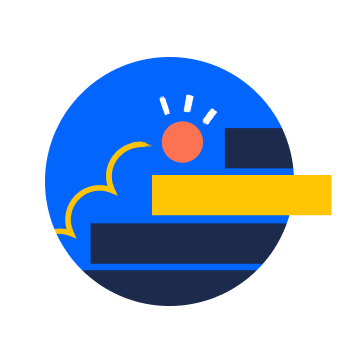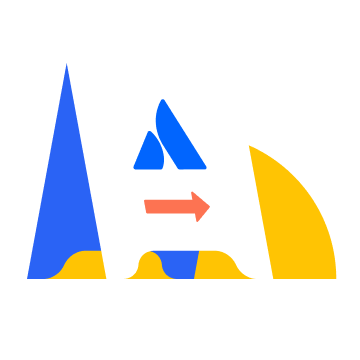Community resources
Community resources
Community resources
Board appearing in multiple projects
I do not understand the logic of boards appearing in projects. If I set the filter to "project = ...", will it then appear on the left-hand side under "boards in this project"? And what if the filter includes more projects e.g. "project = P1 or project = P2" - will this board be seen on both then? Or, to put this question differently, how can I see the tickets from a project on my board, without seeing the board in the project menu. I have a board where I want to see tickets from a few projects, but do not want to interfere with their project set-up and my board should not confuse them by appearing in the "boards in this project" option.
We are using Jira Server 7.11.1, but I found this ticket about Jira Cloud that I thought would apply to us too: https://community.atlassian.com/t5/Jira-questions/How-to-manage-multiple-projects-in-a-single-board-under-new-JIRA/qaq-p/661120 - It talks about "having a board linked to a single project even when you can assign a custom filter to pull issues across multiple projects". So that would mean that although a board can contain issues from multiple projects, it can only show up as "Boards in this project" in one project from what I understood here. However, noticed a different behavior recently as stated above.
3 answers
Just a quick trick : add the following in the JQL filter to specify theProject you want the board to be allocated to, that works fine ;)
Ex : (project = theProject or project not in (theProject)) AND....
And boum, the board is available for theProject
You must be a registered user to add a comment. If you've already registered, sign in. Otherwise, register and sign in.

@Jean-Christophe Gonzales Are you able to help me understand this workaround? I have tried to apply it and am not getting the results i'm expecting. Here is the original query that I'm trying to use:
project = "Project A" OR (project = "Project B" AND status in (Accepted, "In Progress", Blocked, Done))
Project B is a "request intake" type of project and the board in project Project A that this query is for is only supposed to display Project B tickets when they get past a triage stage. Team that owns Project A does NOT want the team that submits tickets to Project B to have access to their boards.
How should my query look with the workaround?
You must be a registered user to add a comment. If you've already registered, sign in. Otherwise, register and sign in.

We have now opened a support ticket with Atlassian: https://getsupport.atlassian.com/servicedesk/customer/portal/20/GHS-148471
You must be a registered user to add a comment. If you've already registered, sign in. Otherwise, register and sign in.

I hope they get that resolved for you. :-)
You must be a registered user to add a comment. If you've already registered, sign in. Otherwise, register and sign in.

Hi Anda - Welcome to the Community!
Yes, you can create a board filter so that it shows issues from multiple projects. Something like "project in (ABC, XYZ)" or as you show above "project = ABC or project = XYZ".
But in the board settings, you link the board to a single project under the location. (see screenshot). You cannot link a board to show up for multiple projects - only one. But you can show issues from multiple projects on the board.
You must be a registered user to add a comment. If you've already registered, sign in. Otherwise, register and sign in.
Hi,
thanks for your response! That is what I thought too, but recently I have noticed something different: when setting the filter to "project = ABC OR project = XYZ", the board appears in both these projects mentioned in the filter (see projects in board in the example below). If I go into any of these two projects, the board shows up under boards in this project. If I go via boards > view all boards and search for this one, it then does not give me a project on the left hand side.
Hence, my question is: I want to see issues from the second project in my board, but do not want the board to appear in the project. What filter can I use in order to not have it show up but still include these issues?
You must be a registered user to add a comment. If you've already registered, sign in. Otherwise, register and sign in.
@Henrik Lynggaard Hansen adding you to this as well (cannot add you as watcher or contact, but you should be able to do so yourself)!
You must be a registered user to add a comment. If you've already registered, sign in. Otherwise, register and sign in.

Hi Anda,
I duplicated your scenario but I only see the Copy of Books and Training board associated with the project that is listed in the location. See the screenshot. The Copy board is in both projects of JMF2 and Books and Training. But it is only connect with the location for JMF2 project.
In the screenshot it shows that there is only one board in Books and Training project. You see the Copy board listed below that but only because it was a recent board and not because it is located in the project. Can you provide a similar screenshot?
You must be a registered user to add a comment. If you've already registered, sign in. Otherwise, register and sign in.

Just adding my experience here, because the matter is a bit complicated and not intuitive.
First off there is no "Location" setting on boards on Jira Server
As @Anda Rebecca Borze eludes to there are two main ways to find a board (via the board or via the project) and they give different results when issues from multiple projects are included.
If the JQL has no "Project" filter:
- When going via boards -> Board is not anchored in a project, only board menu items appear
- When going via projects -> Board can't be found
If the JQL has "Project = <singular project>"
- When going via boards -> Board is anchored in the project
- When going via projects -> Board appears in the list of boards on the project
If the JQL has "Project = <singular project>"
- When going via boards -> Board is not anchored in any project, only board menu items appear
- When going via projects -> Board appears in the list of boards on all projects mentioned in the filter
All in all, it is a bit of a mess, as including tickets from a project using "project in(...)" suddenly makes the board appear in the list of boards for the said project which may not be what you want
You must be a registered user to add a comment. If you've already registered, sign in. Otherwise, register and sign in.

Sorry - did not realize that Server was different. Doesn't make a lot of sense.
You must be a registered user to add a comment. If you've already registered, sign in. Otherwise, register and sign in.









You must be a registered user to add a comment. If you've already registered, sign in. Otherwise, register and sign in.